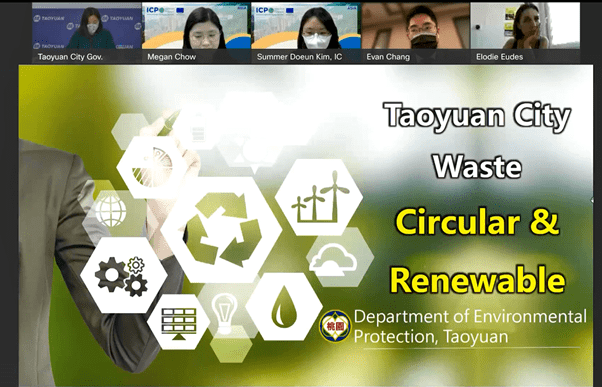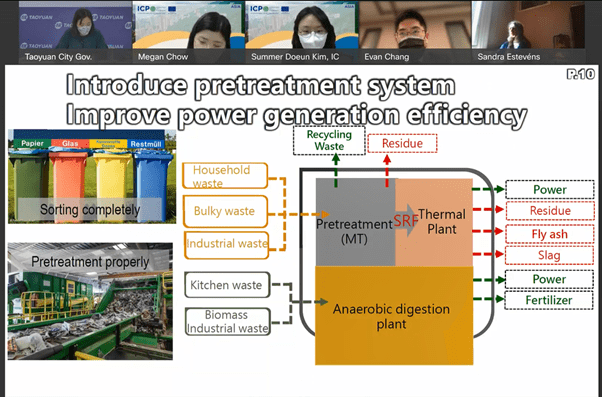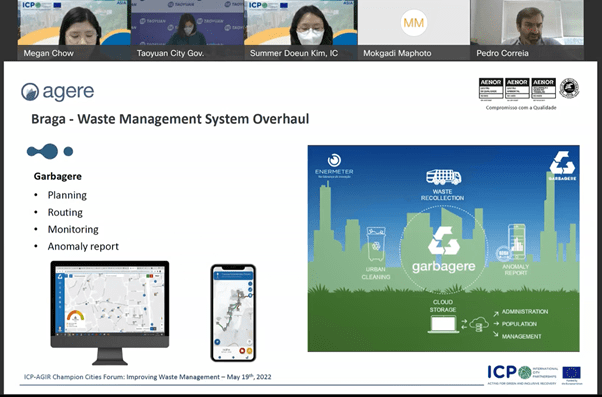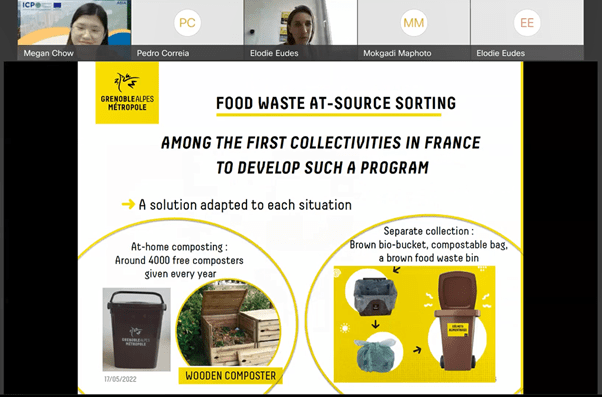One of the champion cities for the Circular Economy cluster, Taoyuan, hosted a forum about Improving Waste Management. The online forum gave cities the opportunity to exchange best practices and implementations from Taoyuan, Braga, and Grenobles-Alpes-Métropole. From the Taoyuan City Government, Evan Chang (Senior Executive Office of Foreign Affairs) delivered warm welcoming remarks, while Mei-Chih Lee (the Section Chief of Environmental Protection Department) kicked off the webinar with the first presentation.
Taoyuan outlined its goal to convert its current “Linear Economy” to the “Circular Economy.” The city has a system that can break the waste into general and raw materials, which can then return to the production supply chain. This system is valuable not only due to its innovative business model but also can be a new way of generating energy. Taoyuan City uses three pretreatment systems: Pretreatment, Thermal Plant, and Anaerobic Digestion Plant. With this system, kitchen waste can become power, and bulk waste can become a source of new power generation by contributing to new fuel like RDF-5. Taoyuan is taking steps forward to become a Self-Circulation Zero Waste City.
Braga then shared their new approach to a Waste Management System. Up until 2018, Braga used to collect recyclable and non-recyclable waste both day and night. However, the city faced overflowing curbside trash and decreased public hygiene. After the city’s in-depth evaluation, the city launched a new system: Hybrid Recollection Systems and Garbagere Platform. The Hybrid Recollection System defines new cleaning zones and is based on the size, installation conditions, operating conditions, and road network – all these factors affect how the waste is collected. Braga also adapted the Garbagere platform system, allowing citizens to utilize PC and mobile apps to track the waste management process and location and report waste on the streets. Braga is setting circular economy as their target goal for 2025 and are planning to achieve 65% recycling from the waste.
Lastly, Grenoble-Alpes-Métropole of France shared multiple approaches to improve waste management. One of the solutions is providing resources to compost. The city gives out 4000 free composters every year to achieve at-home composting, besides the general food waste bin options. Grenoble-Alpes-Métropole also has the composting center, which also encourages sustainable waste management. Grenoble-Alpes-Métropole ultimately would like to achieve goals by starting first action steps, such as banning ads in letter-boxes. The city’s actions to repair and reuse will eventually deliver positive results to the overall waste management in a circular economy.
Ms. Lee from Taoyuan had mentioned during her presentation that Taoyuan is looking to shift from a Cradle-to-Grave model to a Cradle-to-Cradle cycle. “Resources in the wrong place are waste; the waste in the right place is a resource.” This quote accurately sums up each city’s approach towards a common goal, with different methods. Our efforts to decrease and reuse waste will continue to create more sustainable cities.






